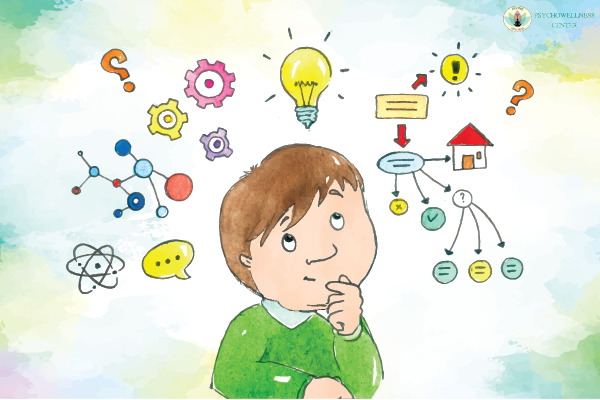You have a responsibility as a parent to support your child’s active learning. This obviously refers to academic intelligence, but there are other forms of intellect that are equally important.
What is emotional intelligence?
A person’s capacity to communicate and manage their emotions in a way that respects others’ feelings is known as emotional intelligence (EQ). Children can start developing this set of abilities at any age. The capacity to recognize, understand, exhibit, manage, and use emotions in communication and interpersonal interactions is known as emotional intelligence (EI). The ability to recognize, interpret, and react to the emotions of others is just as important as the capacity to express and control one’s own emotions.
Signs of emotional intelligence
-
The capacity to recognize and express the emotions of others
-
Knowledge of one’s own skills and limits
-
Self-assurance and acceptance of oneself
-
The capacity to forgive mistakes
-
A capacity for accepting change and a great sense of curiosity, especially about others
-
Having compassion and understanding for others
-
Showing empathy for other people’s feelings
-
Taking responsibility for their mistakes
-
The capacity to control one’s emotions in difficult conditions
Developing emotional intelligence in children
Label the feelings of your child.
Children must learn to identify their feelings. By giving her feelings a name, at least the one you think she is experiencing, you can support your child. You can tell your child, “It looks as you are really angry right now,” when they’re upset because they lost a game or had to share a toy ? If they appear sad, you could ask, “Are you disappointed that we won’t be visiting Grandma and Grandpa today?”
Emotion coaching parents are sensitive to their own emotions as well as the emotions their kids are experiencing. They don’t need their child to express their emotions more strongly in order to acknowledge them. Children are unable to distinguish between their emotions and “selves.” Instead of denying or trying to downplay your child’s feelings, which would provide the message that some emotions are bad or inappropriate, acknowledge your child’s emotions. Search for the best therapist by searching “Best psychologist near me’’.
Show them empathy
It can be easy to minimize your child’s feelings when they’re upset, especially if they appear a bit so over line. Dismissive remarks, however, will educate your child that how they’re feeling is incorrect. Even if you don’t understand why they are upset, it is preferable to acknowledge their feelings and show empathy. Say something like, “I feel angry when I don’t get to do what I want to,” if your child is sobbing because you told them they can’t go to the park until they clean their room. When I’m not in the mood to work, it can be difficult to continue.
Show appropriate emotional expression
Children must learn proper ways to communicate their feelings in social situations. Screaming and throwing objects aren’t appropriate, even though expressing, “My feelings are hurt,” or making a sad face drawing. According to studies, parents who are emotionally intelligent are more likely to raise children who are emotionally intelligent. In order to be a strong role model for your child, make it a habit to clearly focus on developing your skills.
Impart Healthy Coping Techniques
Once children are aware of their emotions, they must be taught healthy ways to handle them. It might be challenging for young children to learn how to relax, brighten themselves up, or face their concerns. Provide specific knowledge. For example, teaching your child to take a few deep breaths to relax their body when they are furious may be helpful. Telling kids to take “bubble breaths,” when they inhale through the noses and exhale through their lips as if blowing through a bubble wand, is a kid-friendly technique to demonstrate this.
You might also work with your kid to make a kit that encourages them to control their emotions. Some things that can assist stimulate their senses and soothe their emotions are colouring books, joke books, relaxing music, and scented lotions. Place the objects in a unique box that they have decorated. Seekk advice from the Best psychologist delhi, Counseling psychologist or you can even seek help fro the best Child psychologist near me.
Acquire problem-solving skills
Learning to solve issues is a necessary component of developing emotional intelligence. After the feelings have been acknowledged and addressed, it is time to consider how to resolve the issue at hand. Maybe the disruptions from their sibling when they’re playing a video game are making your child angry. Help them come up with at least five solutions to this problem. Not all solutions need to be sound concepts.
Make developing emotional intelligence a priority.
Even if your child appears to be emotionally intelligent, there is always space for improvement. Furthermore, there will probably be downs and ups during childhood and adolescence. As they get younger, they’ll probably run against challenges that will test their abilities. Talk about feelings with your young child every day.
Use your child’s mistakes as learning experiences. Take the time to discuss how they might do better going forward when they act out because they are angry or because they have offended someone. Your child can acquire the emotional intelligence and mental strength they’ll need to succeed in life with your continuing support and direction. You may seek professional online guidance from an Online counselor to know more and for further assessments.
In addition, the Psychowellness Centre, which has many sites in Delhi NCR, NOIDA, Faridabad, Janakpuri, Dwarka, and Vasant Vihar, allows you to make an appointment with leading expert psychologists and get mental health counselling.
Contribution: Dr (Prof) R K Suri, Clinical Psychologist, life coach & mentor TalktoAngel & Dr. Sakshi Kochhar, Psychologist.

